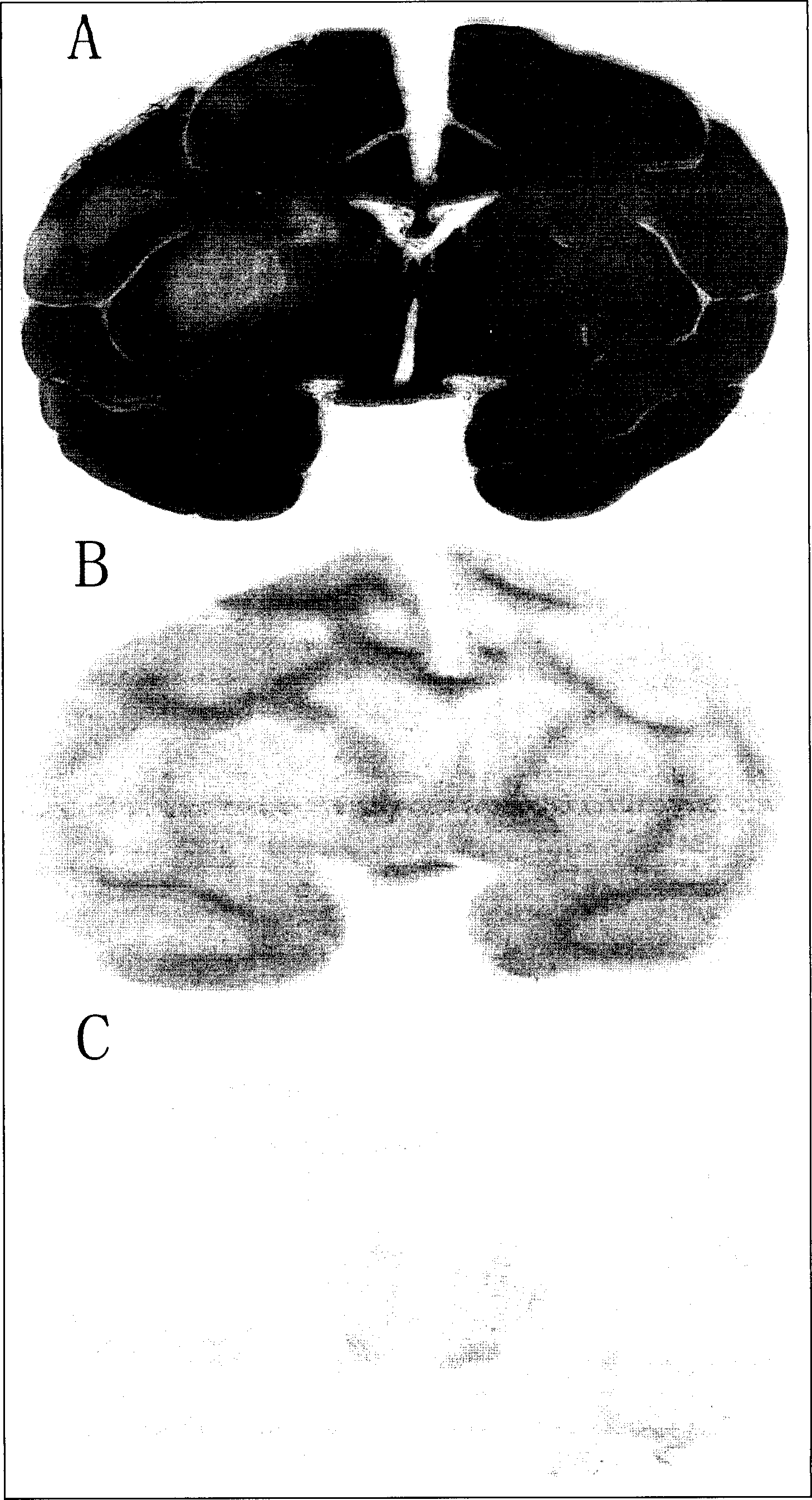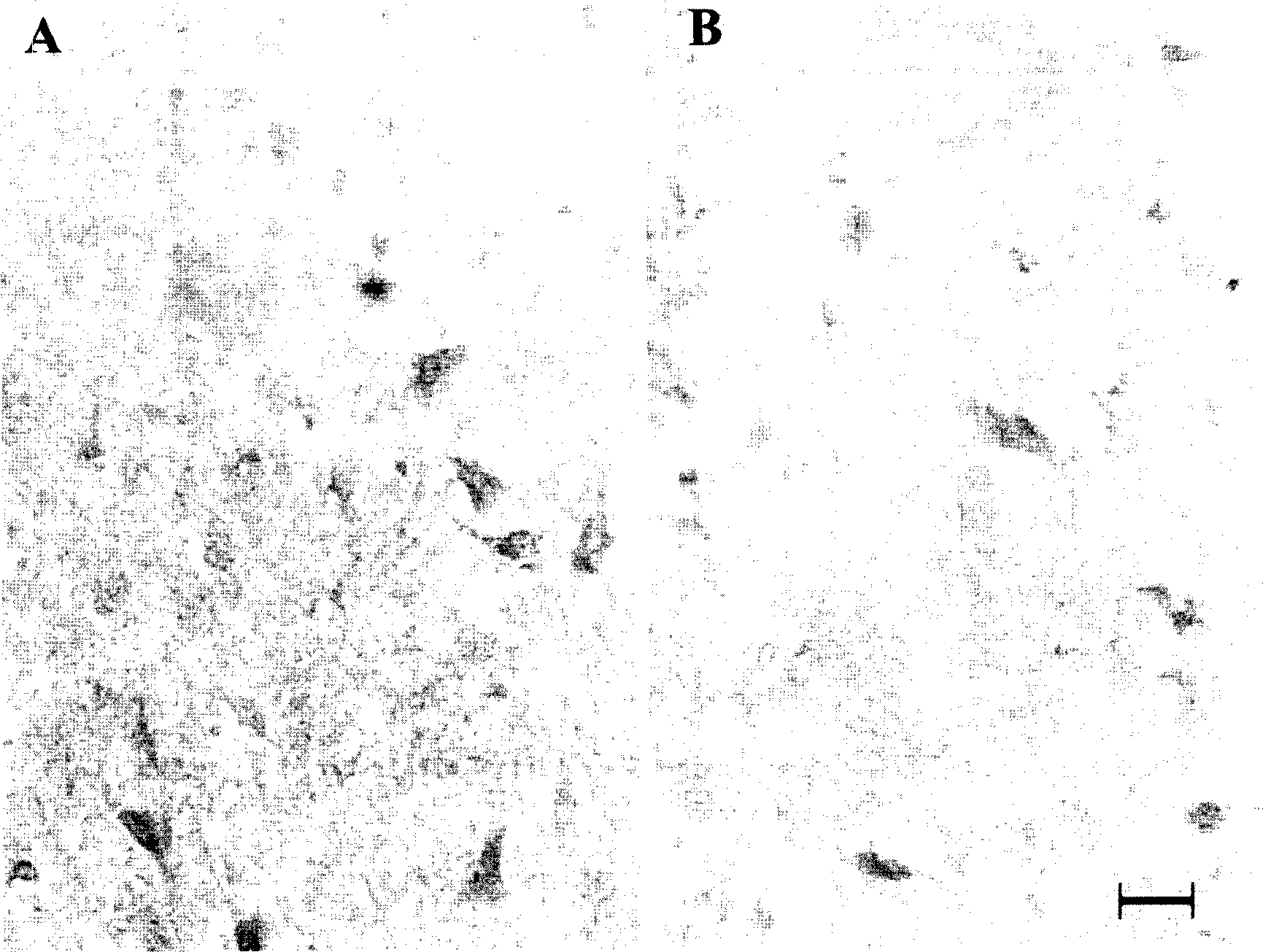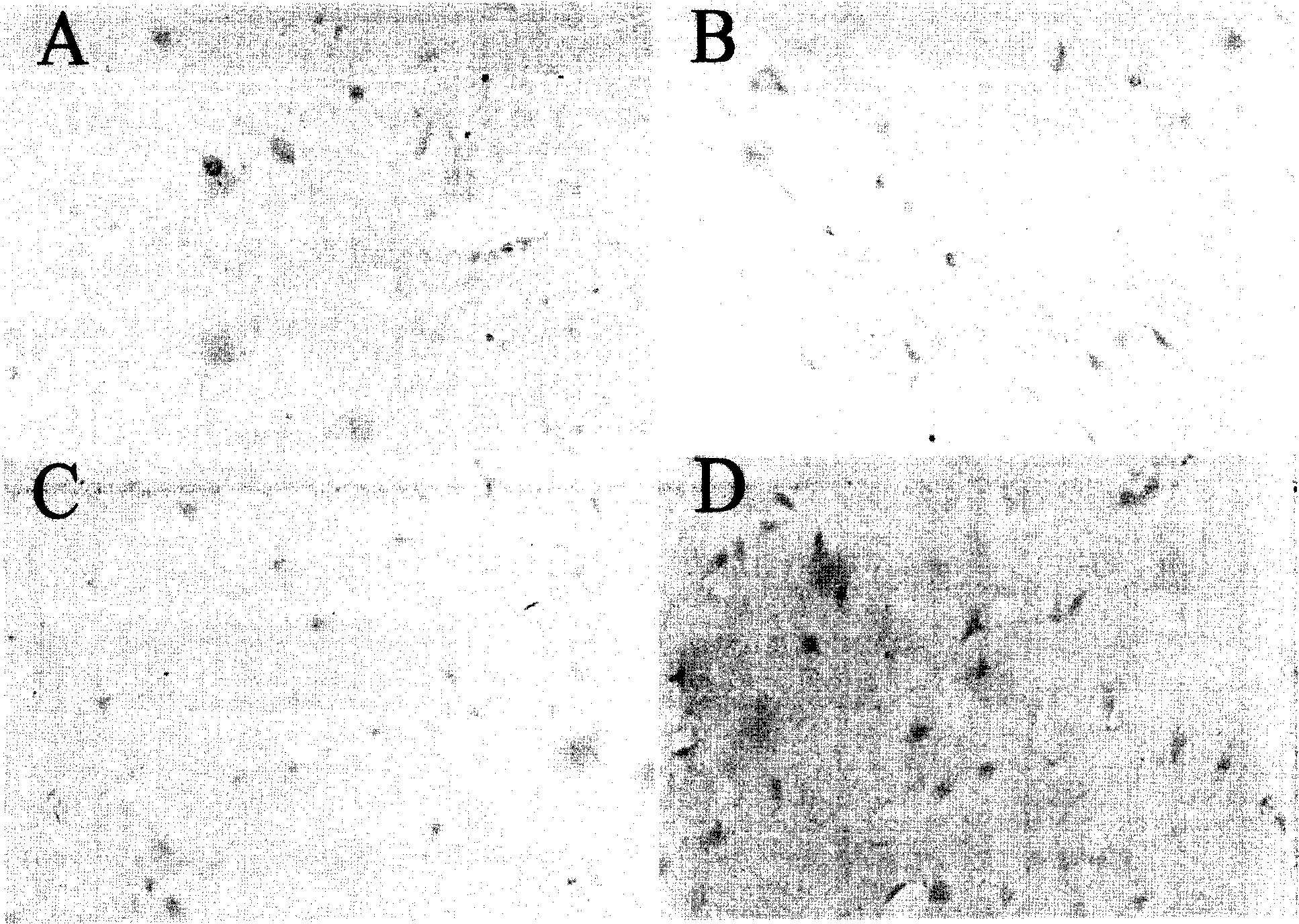Method for making molecular hybridization using stained old cerebotissue section and its use
A technology of molecular hybridization and tissue slicing, which is applied in the field of medical and life science experimental research, can solve the problems that the original tissue specimen cannot be found, has no research value, and cannot obtain new evidence, and achieves low price, clear results and reasonable design Effect
- Summary
- Abstract
- Description
- Claims
- Application Information
AI Technical Summary
Problems solved by technology
Method used
Image
Examples
specific Embodiment approach
[0035] The source of the old slices was taken from the experimental animal macaque (Macaca mulatta), also known as yellow monkey, rhesus monkey, and Guangxi monkey, which belonged to the monkey family; it was divided into the experimental group (8 cases) and the control group (that is, the "sham operation" mentioned in the application document). group", 5 cases), and each group repeated different times according to the experimental requirements. Details are as follows:
[0036] Wash the specimen sections stained with hematoxylin-yinhong (H&E) with 75% ethanol to eliminate the pollutants on the glass slides;
[0037] Remove the gum with xylene to remove the coverslip;
[0038] Formaldehyde is decolorized to remove the dye that has been stained;
[0039] Microwaves are used for antigen retrieval to meet the requirements of new molecular hybridization detection.
[0040] Immunohistochemical staining was performed as follows:
[0041] (1) Sections were fixed in 4% paraformalde...
PUM
 Login to View More
Login to View More Abstract
Description
Claims
Application Information
 Login to View More
Login to View More - R&D
- Intellectual Property
- Life Sciences
- Materials
- Tech Scout
- Unparalleled Data Quality
- Higher Quality Content
- 60% Fewer Hallucinations
Browse by: Latest US Patents, China's latest patents, Technical Efficacy Thesaurus, Application Domain, Technology Topic, Popular Technical Reports.
© 2025 PatSnap. All rights reserved.Legal|Privacy policy|Modern Slavery Act Transparency Statement|Sitemap|About US| Contact US: help@patsnap.com



